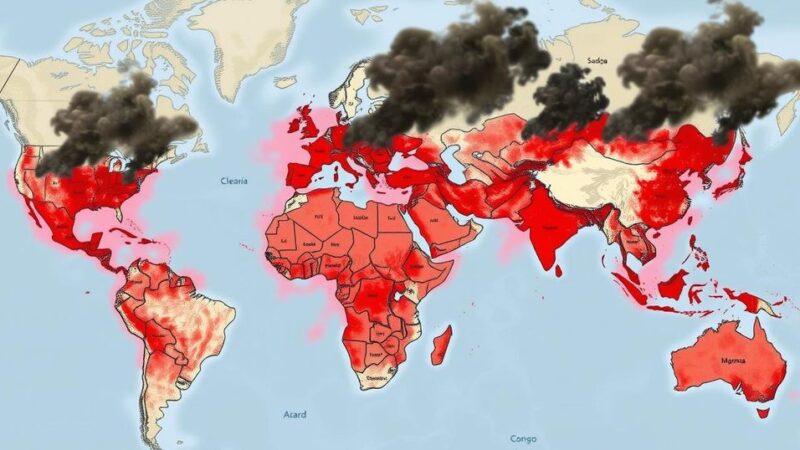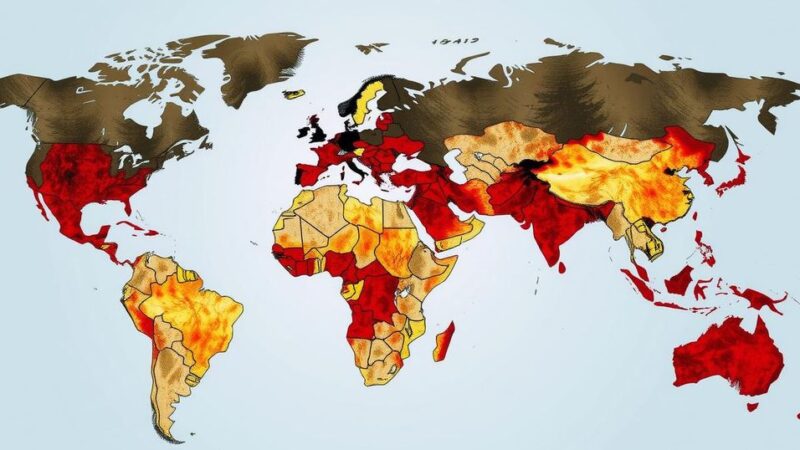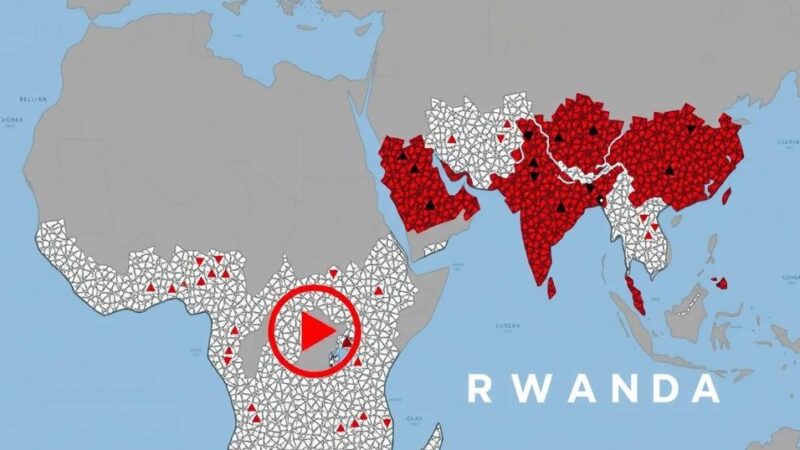Christian Aid reports that the ten most financially damaging climate disasters of 2024 cost over $200 billion, with Hurricanes Milton and Helene leading the tally. The report emphasizes the need for urgent action to reduce emissions and support vulnerable nations. Extreme weather events continue to pose significant risks globally, affecting millions.
A recent report from Christian Aid highlights that the ten most expensive climate disasters of 2024 resulted in damages exceeding $200 billion. Each of these catastrophic events incurred costs surpassing $4 billion, predominantly based on insured losses, indicating that the actual financial toll could be even greater. The report urges immediate action on greenhouse gas emission reductions and increased financial support for developing nations grappling with climate change effects.
Hurricane Milton emerged as the most costly weather event of the year, causing damages of approximately $60 billion when it struck the United States in October. Following closely was Hurricane Helene, which inflicted around $55 billion in damages across the U.S., Mexico, and Cuba. The report also noted that even without hurricanes, other storms in the U.S. led to damages exceeding $60 billion, underscoring the country’s vulnerability to severe weather events.
Among the ten most costly disasters, severe flooding in Europe, particularly from Storm Boris and flooding incidents in Spain and Germany, inflicted significant damage and loss of life. Moreover, catastrophic flooding in China and Typhoon Yagi also highlighted the toll of extreme weather on vulnerable populations. Reports of severe droughts and heatwaves affecting millions further compound the urgency for global action.
The increasing frequency and intensity of climate-related disasters has been a consequence of climate change, which significantly influences weather patterns worldwide. The financial implications of these disasters are staggering, with insured losses only representing a portion of the total economic impact. The urgency to address climate change not only involves emissions reduction but also necessitates financial support for poorer nations, which are disproportionately affected by environmental shifts. Experts indicate that without decisive action from global leaders, the situation is likely to worsen, leading to further humanitarian and economic crises.
In summary, the report by Christian Aid details that the financial consequences of climate disasters in 2024 have crossed the $200 billion threshold, significantly impacting both wealthy and developing nations. The findings advocate for increased attention to climate change mitigation strategies and enhanced financial support for the countries most affected. As global leaders face these mounting crises, a collaborative effort is crucial to avert the escalating severity of future disasters.
Original Source: www.irishnews.com







